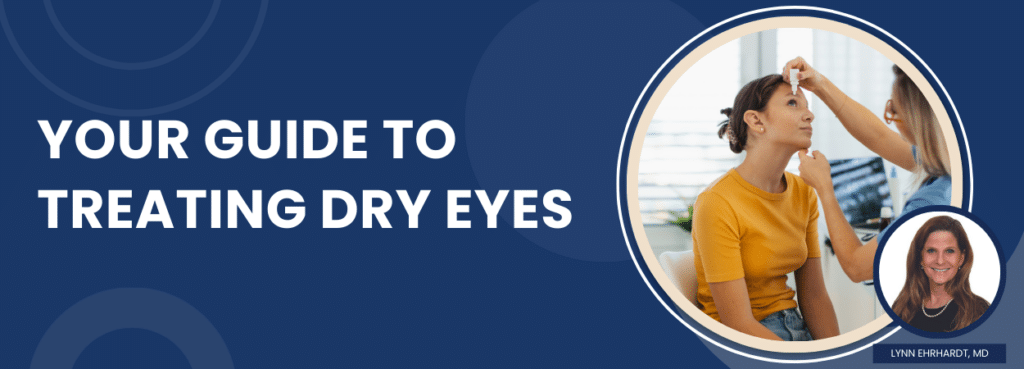Comprehensive Eye,Dry Eye,Uncategorized

Dry eyes are more than just a minor inconvenience — they can interfere with your daily activities and cause significant discomfort. At Sweeney Eye Associates, we frequently see patients struggling with dry eye symptoms, particularly during the fall season when allergens and environmental factors in North Texas are at their peak. In this guide, I’ll walk you through the causes, at-home treatments, and when it’s time to seek professional help.
What causes dry eyes and how can I treat them?
Dry eyes can be caused by a variety of factors, including reduced tear production, excessive evaporation of tears, and inflammation of the eyelids. In North Texas, seasonal allergies like ragweed can aggravate dry eye symptoms. Environmental conditions, such as windy days or prolonged screen use, can also contribute to the problem.
For most people, over-the-counter artificial tears and simple remedies like using a humidifier at home can provide relief. However, if these treatments aren’t helping, it may be time to schedule an eye exam. Persistent dry eye could be a sign of a more serious issue that needs to be addressed.
Are there home remedies for dry eyes that really work?
Yes! Many patients find relief from dry eyes using the following at-home treatments:
- Artificial tears: These lubricating drops help restore moisture. Choose preservative-free options for regular use.
- Warm compresses: Applying a warm compress to your eyelids can stimulate tear production and relieve discomfort.
- Humidifiers: If you live in a dry or heated environment, a humidifier can help add moisture to the air and alleviate dryness.
- Stay hydrated: Drinking plenty of water keeps your body and your eyes hydrated.
- Reduce Screen Time: Prolonged screen use can exacerbate dry eye symptoms by reducing your blink rate. Follow the 20-20-20 rule: every 20 minutes, look at something 20 feet away for 20 seconds to give your eyes a break.
These methods are often effective, but if your symptoms persist, you may need a more personalized treatment plan.
Why do my eyes feel dry and gritty, especially in the morning?
Many patients report waking up with a gritty, sandy feeling in their eyes. This sensation is often due to a lack of adequate tear production during the night or due to eyelids not closing fully while sleeping. For some, environmental factors like low humidity can make this problem worse, especially in the fall.
If this is happening to you, using artificial tears before bed or investing in a humidifier can help. However, if you’re still experiencing discomfort, I recommend visiting us at Sweeney Eye Associates for a more thorough evaluation.
Can allergies make dry eyes worse?
Absolutely. Allergies, particularly in North Texas, are a major culprit when it comes to worsening dry eye symptoms. Ragweed, dust, and other airborne allergens can trigger inflammation and make it difficult for your eyes to produce enough tears. In addition, allergy medications such as antihistamines can sometimes dry out your eyes even more.
If you suspect that allergies are contributing to your dry eyes, consider using lubricating eye drops, keeping windows closed during high pollen days, and using an air purifier in your home. But if symptoms persist despite these efforts, it’s best to consult with an ophthalmologist for further management.
When should I see a doctor for dry eyes?
While many cases of dry eyes can be managed at home, you should seek professional help if:
- Your symptoms are persistent or worsening.
- You experience redness, irritation, or blurred vision.
- Sensitivity to light becomes a problem.
- You find it difficult to perform everyday tasks like reading or driving due to your dry eyes.
At Sweeney Eye Associates, we offer comprehensive exams to diagnose and treat the root cause of your dry eyes. Early intervention is key to preventing long-term complications like corneal damage or chronic discomfort.
Don’t Wait—Get Relief Today!
If you’ve tried at-home treatments and your dry eyes still affect your quality of life, don’t hesitate to reach out. Our team at Sweeney Eye Associates is here to help you find lasting relief. Schedule a consultation, Dr. Lynn Ehrhardt, or one of our experienced ophthalmologists today. We’ll work with you to develop a personalized treatment plan that addresses your unique needs.





